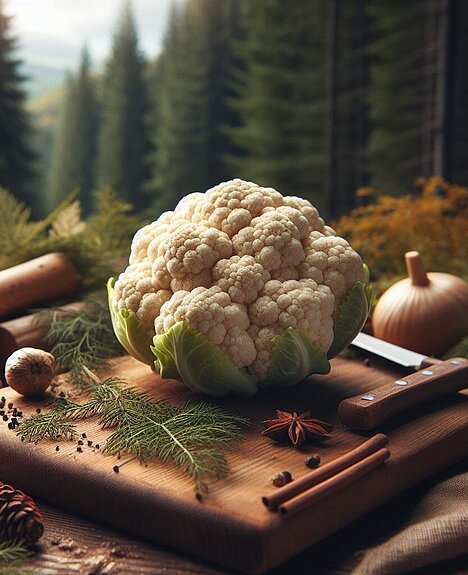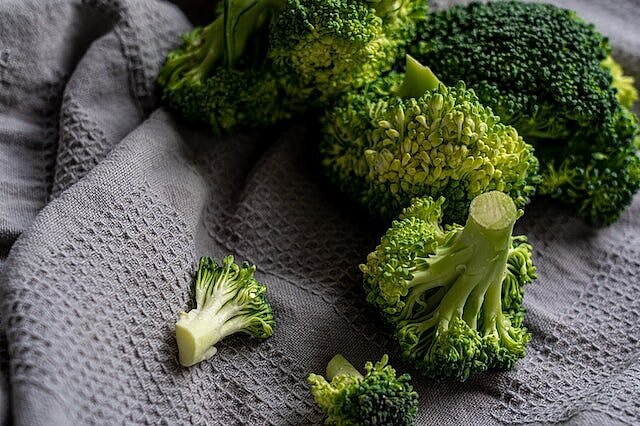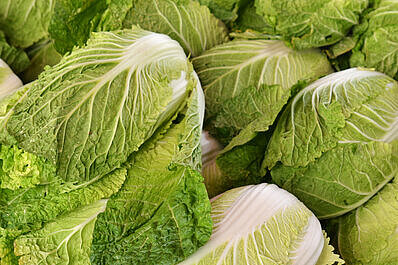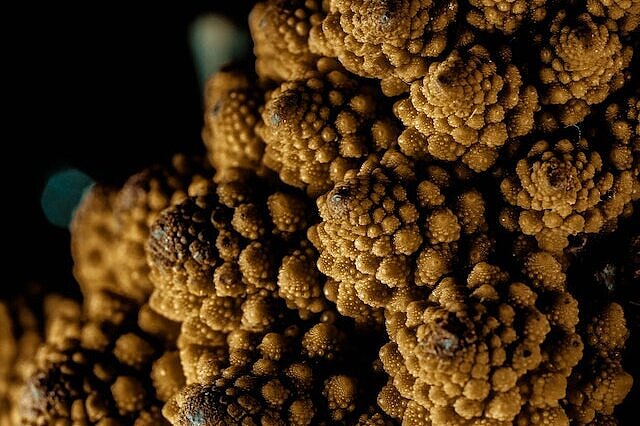Cauliflower

What is cauliflower?
Cauliflower belongs to the cruciferous family and is closely related to broccoli and kohlrabi. It consists of many small white florets that grow on a thick stalk. The green leaves cover the head and protect it from sunlight.
What are the benefits of cauliflower for dogs?
- Cauliflower has a high vitamin C content and provides your dog with important minerals such as potassium, calcium and phosphorus. Vitamin C has an antioxidant effect and can help with bone problems such as osteoarthritis or hip dysplasia.
- The other minerals support your dog's bone and tooth development and nerve function.
- Cauliflower also contains folic acid, vitamin E, vitamin A and B vitamins, which are important for the immune system, skin health and metabolism.
Cauliflower is also low in calories (25 kcal/100 g) and high in fiber (2 g/100 g), which is good for your dog's digestion and satiety.
What are the disadvantages of cauliflower for dogs?
Cauliflower also has some disadvantages for dogs.
- For one thing, it can cause bloating or other digestive problems in some dogs, especially when fed raw. This is because it contains carbohydrates that are difficult to digest and are broken down by bacteria in the gut.
- Secondly, excessive consumption can lead to iodine deficiency, as it contains glucosinolates, which can inhibit thyroid function. This can lead to symptoms such as tiredness, weight gain or hair loss.
How do you feed cauliflower to dogs?
If you want to feed your dog cauliflower, there are a few things you should bear in mind:
- Always boil or steam the cauliflower beforehand. This makes it more digestible and destroys some of the glucosinolates.
- Puree the cooked cauliflower or cut it into small pieces. This makes it easier to mix into the food or give as a treat.
- Only feed small amounts of cauliflower. A rule of thumb is about 10 percent of your dog's daily vegetable intake.
- After feeding cauliflower, monitor your dog for possible intolerances or allergies.
Cauliflower can be a healthy addition to your dog's diet if you prepare and dose it correctly. It provides your dog with lots of vitamins and minerals that are good for his health. However, you should also be aware of possible side effects and not feed too much.
Properties 6
Are you looking for other ingredients with a specific property?
Just click on them to find more.
If you notice any signs of hypersensitivity or poisoning in your dog, you should see your vet immediately. We are not a substitute for a vet, but we try to be as accurate as possible. Every dog reacts differently and we recommend you get a second opinion or consult your vet if in doubt.
Stay healthy and take good care of your four-legged friend!😊
Similar to Cauliflower
Not all vegetables are suitable or tolerated by dogs. Some vegetables can even be poisonous or harmful. That's why you should always do your research before offering your dog something new. These...
Broccoli belongs to the cruciferous family, a plant family that also includes cabbage, Brussels sprouts, kale and cauliflower. Broccoli has a thick stalk and small green florets that look like...
Chinese cabbage is a type of cabbage from the cruciferous family. It has elongated, light green leaves that enclose a white stalk. Chinese cabbage is rich in protein, carbohydrates, amino acids,...
Romanesco is a cultivated form of cauliflower that originated near Rome. It belongs to the cruciferous family and contains many valuable ingredients such as vitamin C, folic acid, potassium, iron...



